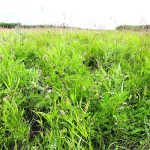With nearly 40 years producing forage seed, the Siklenka family has seen some varieties fall in and out of favour
Glacier FarmMedia – Forage seed production may not receive the attention of many other parts of the beef industry, but it plays a crucial role. Nathan Siklenka and his father, Darrel Siklenka, own and operate Siklenka Seed Farm together near Glaslyn, Sask. The farm has been in operation since 1985. The business is well known […] Read more Livestock Management
Livestock Management

AI reaches into the meat locker
Once commercialized, the high-tech meat management system promises gains on efficiency, sustainability, quality
Glacier FarmMedia – Artificial intelligence is digging footholds in agriculture and agribusiness, from crop and herd monitoring to traceability and weed management. For one Manitoba-born company, AI has become a tool for carcass quality control in the meat sector. Cameron Bergen is chief executive officer and co-founder of mode40, a technology services company that helps […] Read more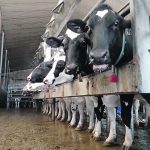
Dairy testing for bird flu expanded in Canada
Non-clinical dairy cattle eligible for funded testing
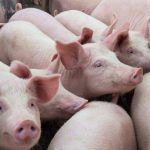
Pork sector gets $9.6 million to prep for African swine fever
Funds underscore importance of research and development to enhance biosecurity measures within the industry
Glacier FarmMedia – The federal government has earmarked more than $9.6 million to help the Canadian pork sector prevent and prepare for African swine fever. Francis Drouin, parliamentary secretary to the agriculture minister, announced funding for African Swine Fever Industry Preparedness Program projects across the country. The Canadian Pork Council also received funding to develop […] Read more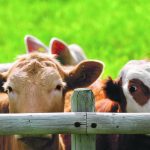
Preparing for a foot-and-mouth disease outbreak
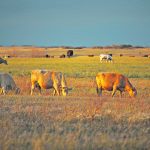
Researcher targets fibre digestibility for forage efficiency
Initial research found surprising links between cattle efficient at digesting fibre and methane emissions
Results of four interconnected studies on cattle forage intake and methane emissions have yielded useful findings, says a University of Saskatchewan researcher. “Our hypothesis is that cattle with greater digestible fibre intake would have positive RFI (residual feed intake) because they eat more,” said Dr. Gabriel Ribeiro, an assistant professor and the Saskatchewan Beef Industry […] Read more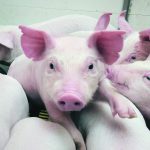
Managing influenza in pigs is a frustrating task
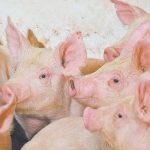
European pigs to eat only waste and byproducts?
Politicians in the EU discuss the potential for a ban on use of farmland to produce livestock feedgrains
WINNIPEG — Pigs once ate a lot of slops. Today, feeding pigs human food waste is banned in some countries and heavily restricted in others. That would need to change in order to create “circularity in food production,” according to Dutch swine nutritionist Alfons Jansman of Wageningen University. European consumers and politicians are beginning to […] Read more
Traceability updates create concerns
Livestock Markets Association asks CFIA for producer education on changes to Health of Animals Regulations
Glacier FarmMedia – Livestock producers want more details and training on proposed changes to Canada’s national livestock traceability rules so they can ensure they meet requirements. Changes to the Health of Animals Regulations (Identification and Traceability) can have far-reaching effects on livestock business operations. Rick Wright, chair of the Livestock Markets Association of Canada, told […] Read more
Feds announce early livestock tax deferral
Program has also been streamlined and buffer zones added to ensure eligibility



 Livestock Management
Livestock Management